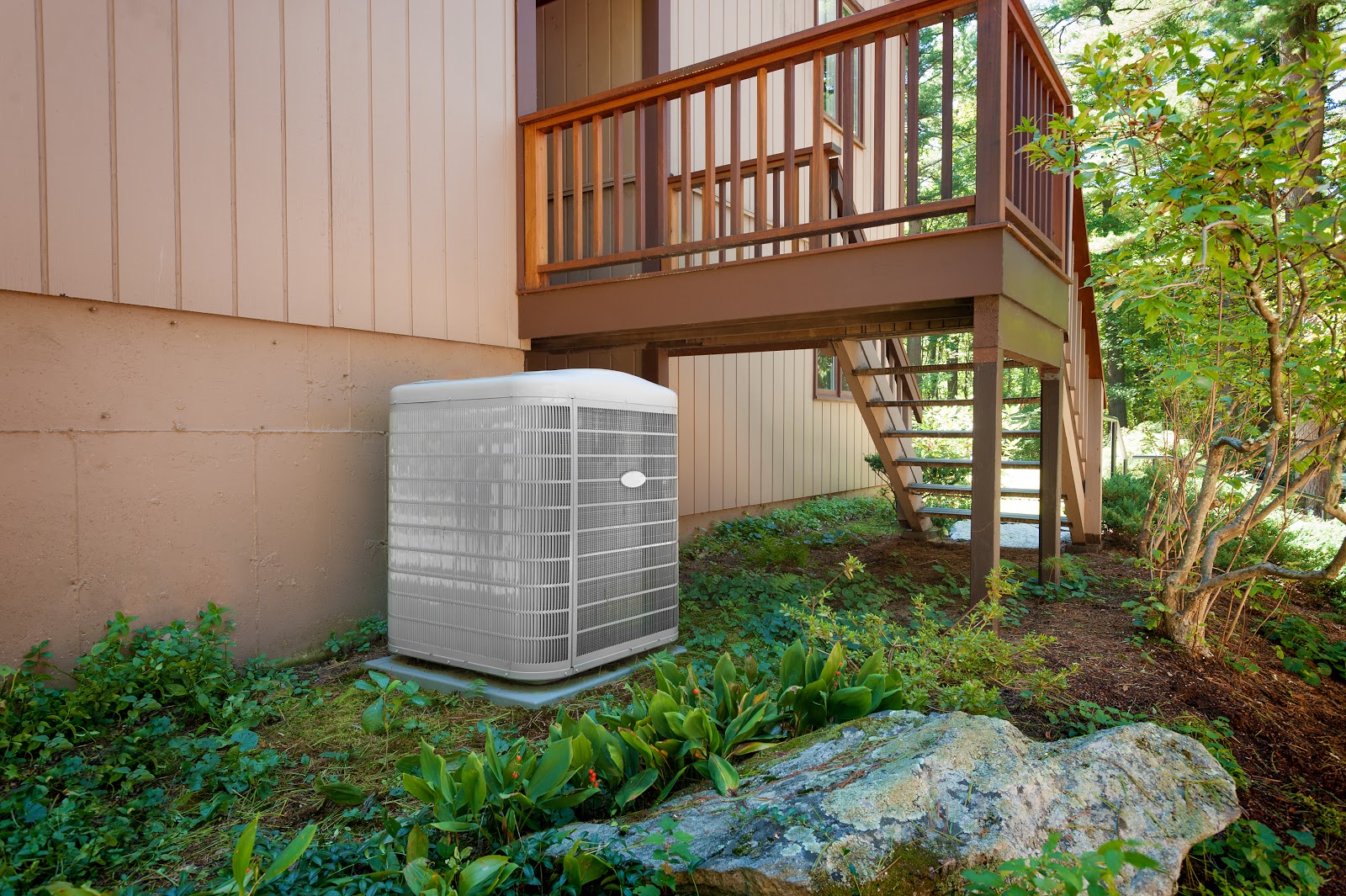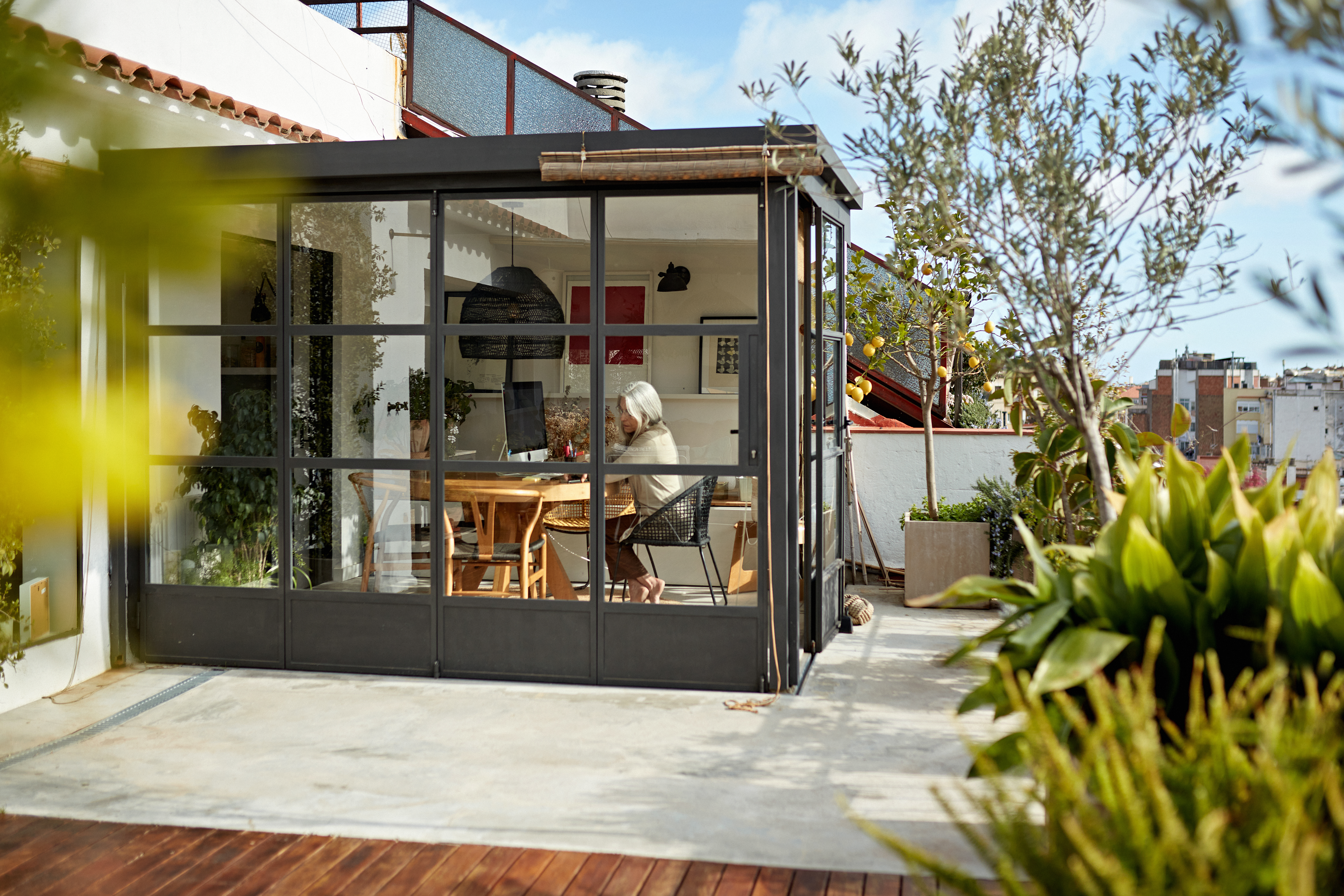HVAC Tax Credits: What Energy Improvements Qualify?

As part of an initiative to reduce America’s collective carbon footprint and the strain on limited resources, the U.S. government offers tax credits to homeowners who have made energy-efficient upgrades. In fact, many home improvements that will add value to your home are eligible for federal tax credits.
If you’ve installed an Energy-Star certified HVAC system, you may be eligible for the Residential Energy Efficient Property Credit on your income taxes this year. Improving your home and saving on your income taxes, now that’s a win-win.
But how do you take advantage of this tax incentive? Keep reading to learn whether your HVAC system qualifies and how you can utilize this tax credit.
Federal HVAC Tax Credit
Several federal tax credits can apply to HVAC systems, the primary one being the Residential Energy Efficient Property Credit—also known as a Non-Business Energy Property Tax Credit. The Residential Energy Efficient Property Credit is a federal tax incentive that allows homeowners to reduce their tax liability by implementing energy-efficient home upgrades.
The federal government offers these tax credits to encourage homeowners to reduce their energy consumption, which helps reduce America’s overall energy consumption.
The federal tax credit allows homeowners to claim a tax credit of 10% of their HVAC system installment costs—up to $500 max. The tax credit, initially set to expire on December 31, 2020, has been extended to December 31, 2021.
The federal HVAC tax credit may apply to you if you:
- Purchased a new HVAC system
- Upgraded some aspect of your home’s HVAC system
- Updated after December 31, 2017 (applies for 2020 tax returns)
- Upgraded an existing home (new construction does not qualify)
- Made the update in your primary residence (you cannot claim this tax credit for rental properties)
In addition to the Residential Energy Efficient Property Credit, geothermal heat pumps may qualify for the Renewable Energy Tax Credit, which offers the following tax savings:
- Geothermal heat pumps placed by 12/31/2019: 30%
- Geothermal heat pumps placed after 12/31/2019 and before 01/01/2021: 26%
- Geothermal heat pumps placed after 12/31/2020 and before 01/01/2022: 22%
Aside from these federal energy-efficiency HVAC tax credits, look into tax incentives by state. You may be pleasantly surprised to find that you can save on your state taxes too.
It’s important to know that tax credit requirements change frequently, so you should double-check the latest qualifications for the tax credit you are trying to claim before filing your taxes in 2021 and beyond.
How to Apply for the Federal HVAC Tax Credit
To apply for the HVAC tax credit, you’ll need to fill out an additional form and submit it with your annual income tax return, which is due April 15th. Use Form 5695 to claim any Residential Tax Credits, including HVAC system updates.
Keep in mind that you should always save receipts for anything you’re going to write off on your taxes. For the Residential Energy Efficient Property Credit specifically, you’ll want to also hold onto the Manufacturer’s Certification Statement, which certifies that the equipment used meets tax credit requirements. Usually, you can download it from the manufacturer’s website.

By having this documentation saved, you’ll have the information you need to back up your tax return claims if you ever face an audit. Although unlikely, it’s always better to be safe than sorry.
If you’re having trouble completing the necessary forms or aren’t sure if your home upgrades qualify, consult a tax professional who can help you through the filing process.
What HVAC systems qualify for tax credits?
HVAC systems may qualify for up to a $500 tax credit on your annual income tax return. However, not every HVAC system meets the requirements, so don’t jump the gun and submit the additional tax form without ensuring your unit meets the criteria.
How do you exactly know what HVAC units qualify for the tax credit? The main qualifier for HVAC systems is that they are energy efficient. Specifically, the system must meet the energy efficiency standards based on U.S. tax code Section 25C or 25D, including the required Energy Efficiency Ratio (EER) and Seasonal Energy Efficiency Ratio (SEER).
Depending on the specific system’s energy efficiency levels, several different types of HVAC systems may qualify for this tax credit, including:
- Split systems
- Packaged systems
- Hybrid split systems
- Ductless mini-split systems
If you haven’t upgraded your HVAC yet, ensure that your preferred system qualifies for an HVAC tax credit. Verify that your HVAC system is eligible by ensuring it meets the requirements of the ENERGY STAR program. Additionally, most retailers and manufacturers will provide details on the units EER/SEER. By familiarizing yourself with the levels required to qualify for the tax credit, you can simplify your shopping process.
What HVAC upgrades qualify for tax credits?
In addition to replacing your central HVAC, the tax credit also applies to certain HVAC upgrades, such as:
- Heat pumps (up to $300 tax credit)
- Central air conditioners (up to $300 tax credit)
- Advanced main air circulating fans (up to $50 tax credit)
- Gas, propane, or oil furnaces and fans (up to $150 tax credit)
- Gas, propane, or oil hot water boilers (up to $150 tax credit)
In addition to these HVAC upgrades, geothermal HVAC pumps can qualify for the Renewable Energy Tax Credit. This tax credit is also retroactive to 2017 and expires December 31, 2021. Because geothermal heat pumps use the earth’s natural heat—making them the most energy-efficient option—they are eligible for larger tax incentives.

Other ways to save on your HVAC upgrades
While tax credits are a great way to reduce your tax liability, you can take advantage of other financial incentives when it comes to HVAC upgrades and other environmentally friendly home improvements.
Rebates
In addition to tax credits, you may be able to qualify for rebates for energy-efficient upgrades. Many state governments offer energy tax rebates to encourage their residents to reduce energy consumption. For example, in California, you can qualify for a $50 to $125 rebate on your smart thermostat.
In addition to state tax rebates, certain municipalities may offer them via local government funding or through the local energy provider.
Unlike tax credits, you don’t have to wait until filing your income tax return to receive your rebate. If you’ve made other energy-efficient improvements to your home, make sure to check if they qualify too. You’d be surprised by how many upgrades—from solar panels to water heaters—might be eligible for rebates in your city or state.
Financing
If you haven’t replaced or upgraded your HVAC system yet, but are considering it, you may be able to finance your purchase and installation. There are various home improvement finance options, like PACE financing, which can help you afford to upgrade your HVAC system now, rather than later. By utilizing financing to complete your HVAC update soon, you can take advantage of the tax credit before it expires.
PACE financing provides the money you need upfront to pay for your HVAC system updates. However, it’s important to note that PACE is a property assessment, not a loan. This method of financing is tied to your property and repaid as part of your property tax bill. There are several benefits of utilizing PACE financing for home improvements like HVAC upgrades, including:
- Access to money up-front
- Low, fixed interest rates
- Extended repayment terms (up to 20, even 30 years)
- Eligibility is based on home equity and payment history, not credit score
Actual requirements and eligible improvements vary by state. Find out if your property is eligible for Ygrene PACE financing.
Take Advantage of Tax Savings & Conserve Energy with HVAC Upgrades
Switching to a more energy-efficient HVAC system isn’t just an opportunity for tax savings this year. It also reduces your electricity consumption for long-term savings. Whether you’ve already made HVAC updates, or you’re planning on it, make sure to take advantage of the available tax savings if you qualify. If you’re still unsure whether your HVAC system upgrades qualify for the Residential Energy Efficient Property Credit, consult a tax preparation expert.




